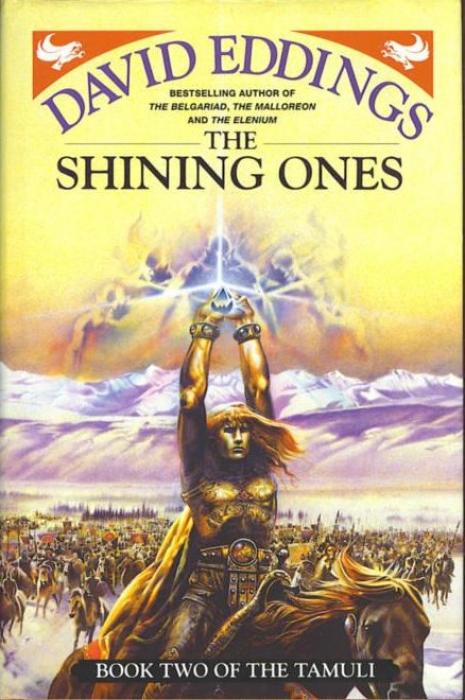 René Magritte painted a picture of a pipe with the caption “Ceci n’est pas une pipe” “This is not a pipe.” Of course it wasn’t a pipe, it was a picture of a pipe.
René Magritte painted a picture of a pipe with the caption “Ceci n’est pas une pipe” “This is not a pipe.” Of course it wasn’t a pipe, it was a picture of a pipe.
Muslim Massacre is a game made by SomethingAwful forumer Sigvatr (I refuse to call them “goons”) that lets you destroy little pixelly blips. There are lots of games where you destroy little pixelly blips, but in this one the pixelly blips represent Muslims. This has made it controversial. We can only guess at how many Muslims in real life have been killed because of this game, but it’s probably a lot.
The game itself is a nose-thumbingly cheap tribute to Postal. You control a true American patriot (hatriot?) carrying a pistol, although passing planes drop additional weapons like a shotgun and a rocket launcher. Your enemies possess everything from suicide bombs to burkas, and eventually you fight Osama bin Laden, Muhammad, and Allah himself. You use the WASD keys to move, and the mouse to aim and fire. Like games of old you can’t save your progress, so you have to beat the thing in one try.
Muslim Massacre is halal if pixelated violence is your creed. You can throw grenades that leave huge craters in the ground, fire rockets that send bodies flying like leaves in a gale, and each dead Muslim vents roughly twenty gallons of blood over the desert sand. Cheerful generic chiptune music plays over the slaughter.
However, I’ll say this: it’s probably not as outrageous as you’re hoping. As a game, Muslim Massacre is fun. As satire, it has a…mildness to it. The whole game involves shooting tiny sprites that sort of look like they have brown skin. A few changes to the art and Muslim Massacre would be just another shameless nostalgia trip to the days when Nintendo published official strategy guides and kids bought them. It certainly has some shock value (especially for people who want to be shocked), but it doesn’t go beyond what Postal accomplished ten years earlier, to say nothing of even older games like Custer’s Revenge.
One wonders why Sigvatr didn’t push the game’s concept further, into South Park territory. Why not allow pork-tipped bullets as an upgradable weapon, for example? If you’re going for edgy, why not go for the white-hot DEFCON 1 shit? Muslim Massacre is a paradox…too much, and not nearly enough.
Perhaps this game isn’t meant to be funny. I’ve read the creator’s webcomic, Electric Retard, which is a mixture of Monty Python’s comedy and Adam Lanza’s misanthropy. I’ve also seen his strange, po-faced apology where he tries to sell Muslim Massacre as an indictment of American foreign policy. Sigvatr’s funny like that. You’re never sure as to whether he gets his own jokes.
Anyway, the game came out, it upset people (but not to the extent where they’d pass up on free traffic by not writing outraged blog posts promoting it), then it went away. Maybe these games are offensive, maybe they’re not, and maybe “offensive” doesn’t matter. These kinds of games hurt nobody, and even if they do, the cure could be worse than the disease. Many people who promote freedom of speech are only thinking about their own speech. They don’t realise that there are a lot of ideas out there, and that – for better or for worse – they’ve opened Pandora’s box.
No Comments »
 This is the most pointless and boring fantasy series that I’ve read BY FAR. Even if it possessed one small testicle and had podiatric contact with a single withered buttock it would have more balls and kick more ass than it does now, which is none and more none, respectively.
This is the most pointless and boring fantasy series that I’ve read BY FAR. Even if it possessed one small testicle and had podiatric contact with a single withered buttock it would have more balls and kick more ass than it does now, which is none and more none, respectively.
The Tamuli is a series of three books featuring the character Sparhawk, who appeared in a previous Eddings trilogy called The Elenium. The Elenium was a feeble fantasy series in its own right, lightly fingering the reader when he wants to be fistfucked, but it had good characters and snappy dialogue.
This has good characters and snappy dialogue, too, but the story is rotten and decrepit to the core. These books run about a thousand pages in paperback, and I am unable to care about anyone or anything in them. There are journeys to strange lands and invocations of mighty magic, and they bore me. The Tamuli shows us how to do less with more – how write a book about gods and wizards and the end of the world…and make the reader yawn. Remarkable.
The book suffers from the same problem that torpedoed Brian Jacques Redwall series: villains that aren’t a challenge to the protagonist. Eleizer Yudkowski once advised fanfiction writers “You can’t make Frodo a Jedi unless you give Sauron the Death Star.” In this book, Sauron is a Jedi and Frodo has the Death Star. The heroes are always ten steps ahead of the villains. Battles are easy squash matches. Gods are on Sparhawk’s side. Spawhawk himself has the powers of a god. What gives? Miss Marple is at greater risk in her investigations than these guys.
Mostly, The Tamuli is a series of tedious happenings, and an overburdened edifice of a plot that’s sagging inward under its own weight. It’s never clear how much significance to assign to specific plot points. You don’t know whether they’re vital clues or filler…and there’s filler in abundance.
We get scenes about the wacky love life of Bevier, or the anthropology of the Tamul empire, and David Eddings’ fem-dom fetish. There’s a female warrior called Mirtai, and Eddings’ frequently reminds us of how powerful and strong she is (and how she’s a match for any man) in rapturous fantasies normally reserved for paid membersites with “goddess” in the URL. Enough, man. Getting creepy here.
Even more irritating is that he cuts interesting things out of the book. In The Hidden City it’s mentioned in passing that a huge battle has been won against Cyrgai troops. I might have been interested in that. Instead, I get it second hand. I’m reminded of when I was a child, and listened to an audiobook of CS Lewis’s The Horse and His Boy – with the climactic battle scene cut out to save space on the tape.
There’s lots of happenings and lots of detail in these books, and it all seems like the buzzing of flies. The Tamuli can be compared to a plate of mashed potato. Lots of crags and valleys and hills. Lots of interesting things if you’re a potato aficiando. For the rest of us, it is a lump of mashed tuber.
No Comments »
 Metal has two taxonomies: the sort with ballads, and the sort without. Demolition Hammer is part of the second sort. There’s not a lot of music here to show your girlfriend, although if the timing’s right she might relate to “Infectious Hospital Waste.”
Metal has two taxonomies: the sort with ballads, and the sort without. Demolition Hammer is part of the second sort. There’s not a lot of music here to show your girlfriend, although if the timing’s right she might relate to “Infectious Hospital Waste.”
Tortured Existence is the first of Demolition Hammer’s three albums. The third sounds like Pantera/Prong mixed with the shitty sixth Ministry album. The second is a thrash metal coat of many colours, influenced by Slayer, Sepultura, Dark Angel, and others. The first album, however, has tunnel vision for a single style, New York brand thrash. Demolition Hammer don’t do anything original, but they sound inspired and energetic.
The riffs are aggressive and unrelenting, similar to Stormtroopers of Death and Nuclear Assault and various other bands from The City That Never Sleeps (Because You’re Playing Metal Too Loud). The production has an odd character. The guitars are loud and guttural, with the mids EQ’d away, giving them a crushing but not very heavy aesthetic – listen, and judge for yourself. Tortured Existence feels like being strangled by a warm, soft paw.
The songs all sound similar, but to the attuned ear there’s variation. “44 Calibre Brain Surgery” is the craziest track, “Crippling Velocity” is the fastest, and “Infectious Hospital Waste” is the catchiest, with most of the other songs walking the territory in between. The songs stick to a formula of punishing riffs interspersed with lead breaks interspersed with barked vocals interspersed with gang shouts. And then, just as this album’s one trick is getting dull, it all ends.
Derek Sykes and James Reilly are a tight rhythm team. The deceased Vinny Daze is an able drummer, although unworthy of the embarrassing levels of praise heaped upon him by some members of the online metal community. I think he suffers from Dead Rockstar Syndrome, where talented, above-averaged musicians like Cliff Burton and Randy Rhoads get hagiographed into musical geniuses. Steve Reynolds barks out lyrics about social, political, and medical aberrations with a distinct Australian-sounding accent.
Tortured Existence was released in a year starting with “199-“, so the timing could have been better for this band. Rather than riding the upward surge of thrash, they had their halcyon days right when the genre was shutting down. They were consigned to cult band status when they had the talent and potential to be much more. They soldiered it out for two more albums (the last one being a horrible attempt at ripping off Pantera), then broke up. There was a cash-cow anthology release from Century Media in 2008 (publically disowned by Derek Sykes), and that’s it for these guys.
For now, though, the Demolition Hammer crashes down. It’s a solid release that deserves its cult status. You could never call it a game changer, but some games aren’t meant to be changed.
No Comments »
 René Magritte painted a picture of a pipe with the caption “Ceci n’est pas une pipe” “This is not a pipe.” Of course it wasn’t a pipe, it was a picture of a pipe.
René Magritte painted a picture of a pipe with the caption “Ceci n’est pas une pipe” “This is not a pipe.” Of course it wasn’t a pipe, it was a picture of a pipe.

